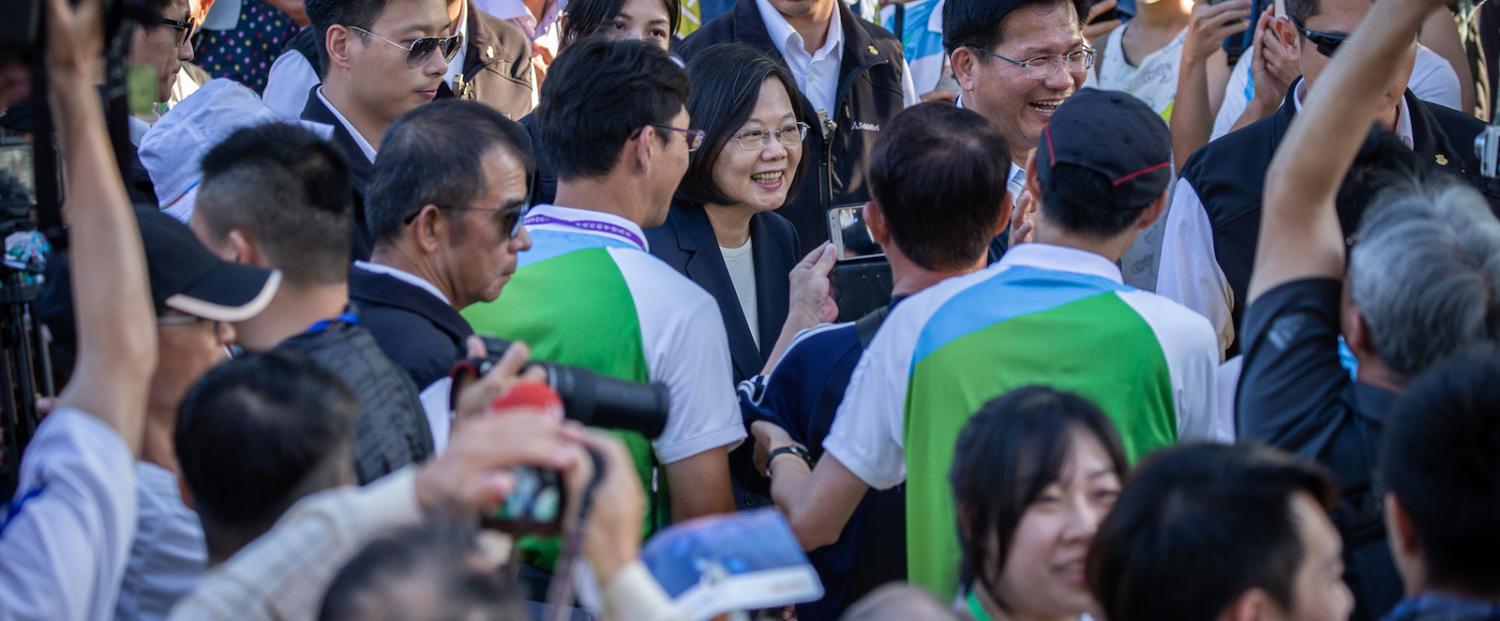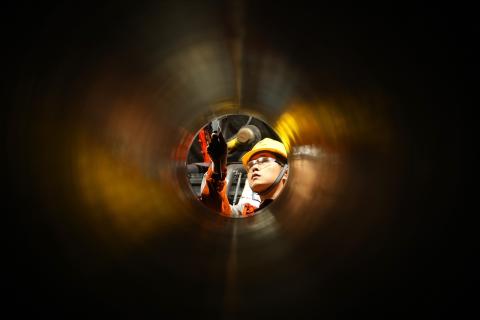On Saturday, the people of Taiwan will head to the polls to cast ballots for more than 11,000 officials. Taiwan’s citizens will vote for the mayors of the “big six” special municipalities of Taipei, New Taipei, Taoyuan, Taichung, Tainan, and Kaohsiung. Also up for election are 13 county commissioners, about 900 councillors, 56 indigenous district representatives, nearly 2,300 local representatives, and over 7,700 borough wardens.
Despite the scale of candidates and positions in this year’s local elections, Taiwan’s domestic political environment is unlikely to change overnight. Much like midterm elections in other democracies, these elections are a barometer for the Democratic Progressive Party (DPP) under President Tsai Ing-wen and a prelude to presidential and legislative elections in 2020.
This year’s elections are likely to provide a clearer sense of how satisfied the general public is with the DPP.
The local elections are the first test for the DPP since it stepped into power following the 2016 presidential and legislative elections. This year’s elections are likely to provide a clearer sense of how satisfied the general public is with the DPP. Domestic issues – ranging from the economy to marriage equality and energy supplies – are likely to influence how the people of Taiwan choose to vote.
While the outcomes of the election may have implications for Taiwan’s relationship with China or foreign policy issues, it is worth remembering that local elections tend to focus primarily on local and national issues.
Most of the media attention leading up to the elections is upon the mayoral elections. In Taipei, the race is between incumbent Ko Wen-je (Independent), Pasuya Yao (DPP), and Ting Shou-chung (KMT).
Ko was notably endorsed by the DPP when he first ran for the mayoral seat in 2014. Many now question whether his policies align with the DPP’s platform, particularly given Ko’s past remarks that the two sides of the Taiwan Strait are part of “one family”. Nonetheless, Ko is a popular candidate and most polls show Ko leading over Ting by a few percentage points. If he is reelected as Taipei mayor, some reports have suggested that he may next seek the presidency – a path former Taipei mayors-turned-Presidents Chen Shui-bian and Ma Ying-jeou have also taken.
Beyond Taipei, it will also merit watching how the KMT fares in other locales and whether the party can begin to recoup some of its previous electoral losses. The KMT has been in political trouble since losing control of the legislature in 2016. As it currently stands, the KMT appears to be most competitive in two of the “big six” municipalities: Taichung and Kaohsiung.
In Taichung, the race for mayor is between the incumbent Lin Chia-lung (DPP) and Lu Shiow-yen (KMT). During Lin’s mayoral tenure, his decision to end Taichung’s “Bus Rapid Transit” system and persistent air pollution have fuelled popular dissatisfaction. Polling conducted by TVBS in late October suggests that Lu is likely to edge out Lin by a few percentage points.
In Kaohsiung, KMT mayoral candidate Han Kuo-yu is running against the DPP’s spokesperson, Chen Chi-mai. Han has been surprisingly successful at winning support from Taiwanese youth – a constituency the KMT has traditionally struggled to capture. Han’s popularity on the campaign trail appears to come from his frankness, including his belief that two decades of DPP leadership in Kaohsiung has made the municipality “old and poor”. Polling appears to agree with Han, with over half of those surveyed by TVBS in early November supportive of a change of ruling party.
Finally, when the Taiwanese head to the polls this month, they will also be voting on a multi-question referendum. The referendum is the first since amendments to the Referendum Act passed in December 2017 lowered the barrier to getting questions on the ballot. Among the questions to appear on the ballot, voters will be asked about education, energy and the environment, civil rights, and Taiwan’s international engagement. These questions are a litmus test for policies championed by the Tsai administration, including whether nuclear energy power-generating facilities should cease operations, whether marriage should be restricted by gender, and whether Taiwan should apply to participate in international sporting events as ‘Taiwan.’
From the municipality down to the borough level, the outcome of this year’s local elections will offer an updated reflection of what the people of Taiwan expect of their democratically elected representatives. That will become clear in an assessment of the 24 November election.
The views expressed in this article are those of the author alone.

